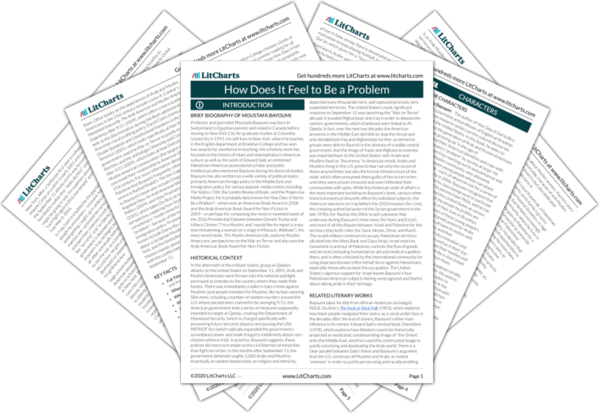Rami Quotes in How Does It Feel to Be a Problem?
But still it's not enough. “There are a lot of Muslims,” Ezzat says, “but there is no Islam.”
“Oh, man,” he said. “I forgot a good ending!” He pursed his lips. “Sometimes you just forget,” he explained.
“How did you want it to end?” I asked.
He paused to get the expression just right. “You come into the world crying while everyone around you is laughing,” he said. “But when you leave this world for the next life, and everyone else is crying, you should be laughing.” He summed up what he meant. “You've done good. Now all you have is bliss,” he explained with wide eyes. “That's what I should have said.”
The young imam was kicking himself and smiling.

Rami Quotes in How Does It Feel to Be a Problem?
But still it's not enough. “There are a lot of Muslims,” Ezzat says, “but there is no Islam.”
“Oh, man,” he said. “I forgot a good ending!” He pursed his lips. “Sometimes you just forget,” he explained.
“How did you want it to end?” I asked.
He paused to get the expression just right. “You come into the world crying while everyone around you is laughing,” he said. “But when you leave this world for the next life, and everyone else is crying, you should be laughing.” He summed up what he meant. “You've done good. Now all you have is bliss,” he explained with wide eyes. “That's what I should have said.”
The young imam was kicking himself and smiling.











